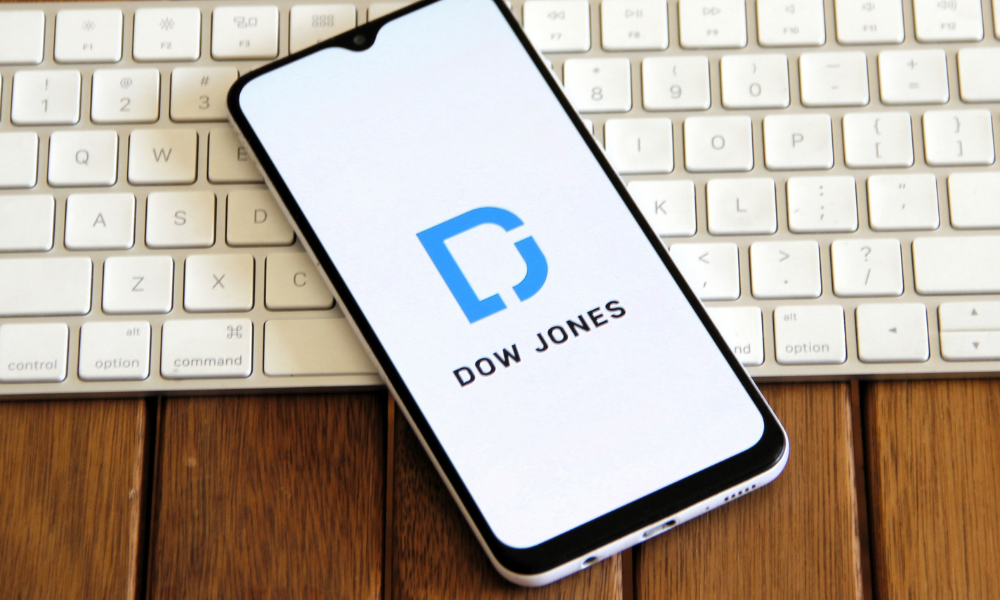

US assets are suffering the worst of the pain from President Trump’s tariff announcement, but global stocks are feeling the pressure.
Futures stats suggest the Dow Jones is set to open more than 1,000 points (2.4%) lower Thursday with the S&P 500 and Nasdaq futures down around 3%.
Among the pre-market movers are Nike (down more than 8% as of 5.30am ET), Robinhood (-7%), and Apple (-7%), along with retailers who rely on low-cost goods such as Five Below (-14%) and Dollar Tree (-11%).
Bloomberg’s Dollar Spot Index dropped as much as 1% to a five-month low with global currencies gaining; the euro was up 1% as was the yen, with the pound up 0.8%. Gold hit a new high and US 10-year Treasury yields dropped to a five-month low towards the 4% mark.
“There’s clearly a tolerance for pain on the part of the administration in pursuit of trade goals that are not necessarily entirely economic in nature,” Ross Mayfield, Baird investment strategist told CNBC. “At this point I’m still in the camp that we’re not on the doorstep of a recession, but maybe a slowdown or growth scare. Non-recession sell-offs tend to be shorter and milder than the recessionary ones.”
The tariffs which range from a base level 10% through to 50% for what the president called the “worst offenders” in unfair trade practices with the US over many decades. The new tariffs are in addition to existing ones, meaning countries such as China (with an existing 20% tariff + a new 34%) will be sharply impacted.
But Wall Street analysts remain bullish on Chinese and Hong Kong stocks, due to government support and diverse export markets. Nicholas Chui, a fund manager at Franklin Templeton, said China represents the “largest opportunity set for investors.” UBS and JPMorgan also showed optimism for China’s equities.
The new levies are also on top of auto tariffs of 25% and those already announced on steel and aluminum. Canada and Mexico were excluded from the new wave of tariffs having backed down on a large chunk of tariffs last month and both Canadian and Mexican futures were higher early Thursday.
“Eye-watering tariffs on a country-by-country basis scream 'negotiation tactic,' which will keep markets on edge for the foreseeable future,” Adam Hetts, Portfolio Manager and Global Head of Multi-Asset at Janus Henderson Investors told InvestmentNews. “Fortunately, this means there's substantial room for lower tariffs from here, albeit with a 10% baseline in place. We've seen the administration have a surprisingly high tolerance for market pain, now the big question is how much tolerance it has for true economic pain as negotiations unfold.”
Globally, the Nikkei 225 index was down almost 3% as of 5.30am ET, the Hang Seng was down 1.5%, and the Stoxx600 was down 1.5%.

A new proposal could end the ban on promoting client reviews in states like California and Connecticut, giving state-registered advisors a level playing field with their SEC-registered peers.

Morningstar research data show improved retirement trajectories for self-directors and allocators placed in managed accounts.

Some in the industry say that more UBS financial advisors this year will be heading for the exits.

The Wall Street giant has blasted data middlemen as digital freeloaders, but tech firms and consumer advocates are pushing back.

Research reveals a 4% year-on-year increase in expenses that one in five Americans, including one-quarter of Gen Xers, say they have not planned for.
Orion's Tom Wilson on delivering coordinated, high-touch service in a world where returns alone no longer set you apart.
Barely a decade old, registered index-linked annuities have quickly surged in popularity, thanks to their unique blend of protection and growth potential—an appealing option for investors looking to chart a steadier course through today's choppy market waters, says Myles Lambert, Brighthouse Financial.
